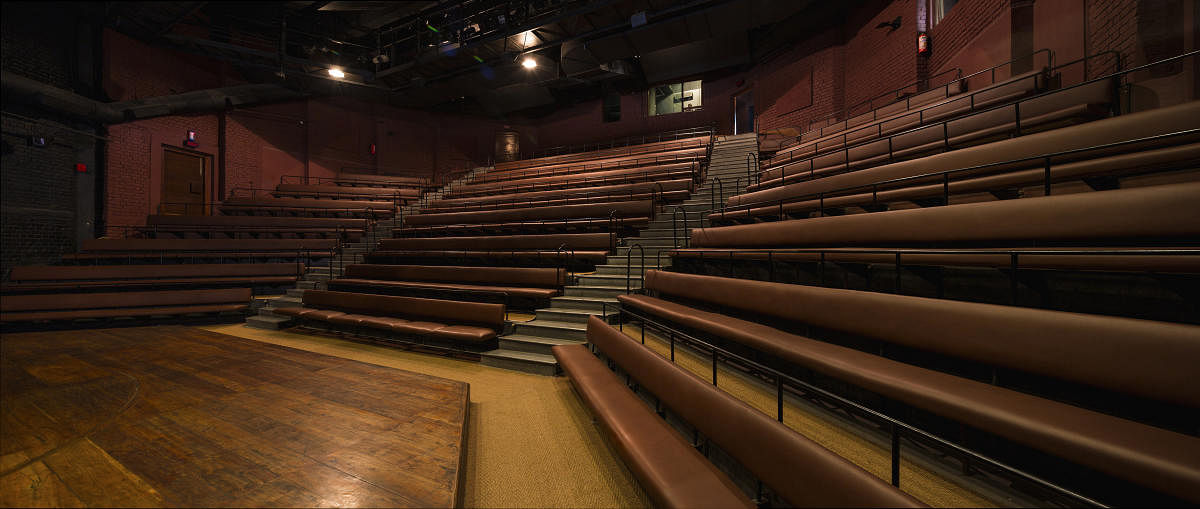
There is a boulder at the entrance of Ranga Shankara that perhaps epitomises the solid commitment of Arundhati Nag and a handful people to build a theatre space that would endure the test of time. Today, 15 years later, that boulder still stands there, having silently witnessed the hubbub of theatre activity that went on around it through the years.
“That boulder is from a village close to our house in Singasandra (where Shankar and I had lived on a farmhouse). It was a phenomenal feat on the part of farmer-turned-contractor Jayappa Reddy, who had built our house in the middle of nowhere, to actually put that huge piece of rock on an ordinary lorry and bring it to Ranga Shankara. And when the rock was about to be pushed out onto the ground, the whole lorry lifted itself. He was such a die-hard Shankar Nag fan. For him, delivering that rock to Ranga Shankara was like his gift to Shankar. He knew how much Shankar loved rocks. And I felt that bringing that rock from where Shankar and I lived was very metaphorical for me. You could almost transfer the energy of all the spaces that you grew up in — in Ravindra Kalakshetra, many theatres and colleges across India. One cannot bring a stone from Kalakshetra or from any of these spaces. But when Shankar and I had lived on that farm, we got connected with the earth. It was like bringing a piece of that earth we had lived on, a piece of ourselves, to this space. That rock means a lot of different things to me. The land where my house was, and where the rock came from could get sold. A mall could come up over there. But this rock will be here. It lends a sense of permanence — much more than property, money and home.”
I wondered how Arundhati would describe her long journey so far, if she were to distill her thoughts. She took a few moments. “A lesson in humility,” she said quietly, with a very meaningful little laugh. “It’s like how a child humbles you.” She resumed after we allowed her statement to settle down in the air. “When you have a biological child, the
experience of bringing it up, when you are faced with the innocence of childhood, you are humbled every day, every minute — you could be the king, or a dictator, or anybody. That’s when you realise that one is only the nimmittha, the conduit, through which anything is delivered. You are not the propeller, you are nothing. You are just somebody who has been fortunate to be handed over such an important thing, to take care of it, and nurture it. It’s a huge responsibility, but with it also comes a lot of joy. It’s nurturing a dream, a child that will actually never grow up. This is a very special child. My biological child has grown up and has a child of her own. But this child of mine is not going to grow up. It will only be as good as the people who are there inside it.”
There were hardly any pauses now. The energy with which she spoke that night belied her long journey. “So it’s not about money, it’s not about who is sponsoring you, it’s just the sheer good energy of the people who are at the core.” For Arundhati, it has actually been 25 years since the idea started. There were the 10 years of fund-raising, of which three
were construction time, and then the 15 years of actually running the space. In physical terms alone, the theatre averaged about 400 shows a year. That’s approximately a staggering 6,000 shows till date.
I brought a metaphor, an analogy of mine into play, of an aircraft that has been climbing steadily, weathering storms of all kinds, against many odds. What was one of the main pilots, Arundhati, looking at, as the aircraft had now reached a secure cruising level and speed…and even before I finished the question, pat came the answer. “I am looking at switching pilots,” she said with a hearty laugh that was infectious. “I am looking at four more pilots who can fathom this dream, and I know they are there somewhere on this planet, I can’t be the only creature. Yes, new pilots.” I continue with the analogy, that this plane had to continue cruising, never land. Perhaps the new pilots would emerge organically.
“Yes, they will, I am sure. Succession is a huge issue, but not a problem, ahead of us. We are not immortal, and the projects that we give birth to should live longer than us. Who is going to be the bunch of new trustees, advisory board, the new artistic director (of the theatre). There is still a lot of work. We need to train a lot of arts management people for the country. That’s a huge responsibility. Maybe a new network of theatres, with similar ideology, across the nation. One Ranga Shankara or a Prithvi Theatre is not enough for such a vast country. So we have this idea now, but no money,” she remarked with a rueful laugh. But Ranga Shankara has shown what an idea could do. The huge rock at the entrance of this special theatre space would perhaps still be there to record the answers.